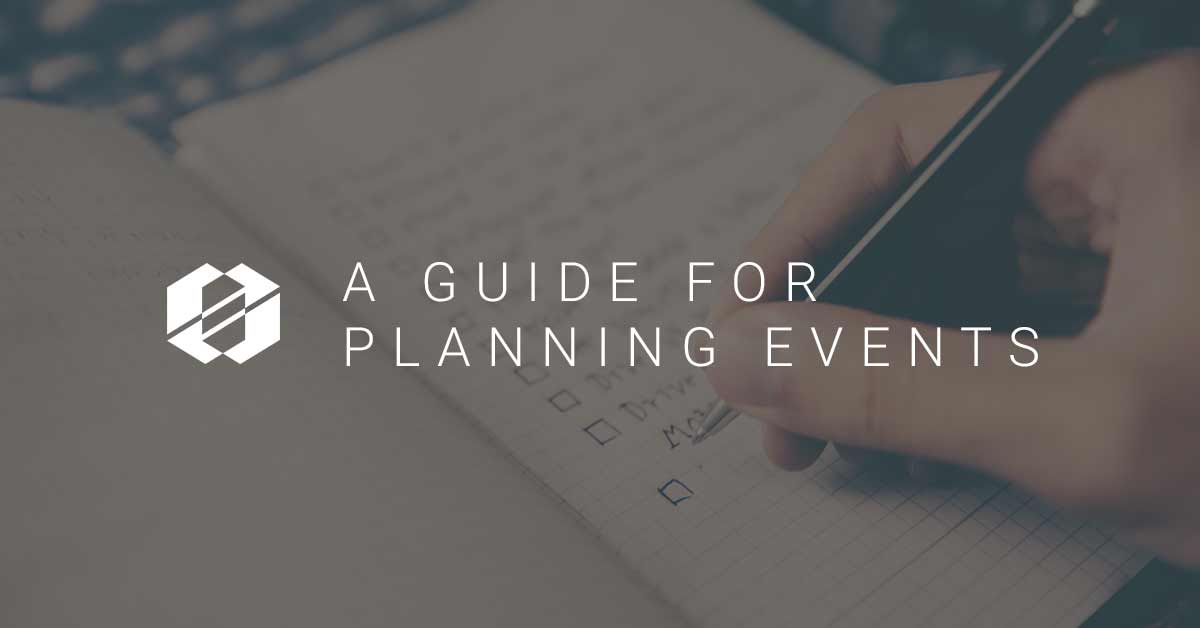When it comes to planning events, details are everything. And if you work at a church, you may be needing to begin the process of planning an event. Contrary to popular belief, planning events can actually be a pretty painless as long as there’s a streamlined process in place. Hopefully this can be a great guide for you before you begin. .
“One day Alice came to a fork in the road and saw a Cheshire cat in a tree. “Which road do I take?” she asked. “Where do you want to go?” was his response. “I don’t know,” Alice answered. “Then..” said the cat, “it doesn’t matter.”
– Alice in Alice in Wonderland
A good plan is necessary to make sure that your event is meeting your objectives and that you don’t spend needless time and budget when you don’t need to.
When we begun planning SALT Conference, we started with our Vision and Purpose for the gathering. But for most Creatives that is where the planning stops, and we hope that the rest of the details will magically come together. After years of doing the conference we have come up with a process that works really well for our team and may work well for you too in planning events in your church.
Write the Vision.
Go ahead and sit down with a cup of coffee, allowing yourself to simply dream. In this state you’ll figure out your vision statement and explore the purpose of the gathering. Why am I having this event? Who do I want to invite? What do I want to say? Is the theme? Do I have speakers in mind? etc. Then try to envision the outcome of the event. How do I want the attendees to feel? How do I want the event to look from a design or atmosphere standpoint? Write everything down. Our team uses Evernote, Google Docs and I write a ton down on the trusty yellow pad.
Write out the Goals.
We use SMART goals (Specific, Measurable, Attainable, Realistic, and Time-Bound). During this process, I ask myself what I want as the outcome? And I work my goals from there. Are there a number of tickets you want to sell, or if you aren’t charging admission, is there a number of attendees you want in the room? It’s good to identify the steps to achieve the goals as well. For our team we create milestones or markers so that I am constantly moving toward the end result without getting overwhelmed. So if my goal is to have 400 people at my event then I might make a goal of getting 100 people signed up by a certain date and continue in that pattern until the event date.
Organize the team and define roles.
You can’t do it by yourself. Repeat that to yourself aloud.
Recruit a group of people that will lead areas that you have outlined. The Event Director will be in charge of making sure everyone is communicating process and giving appropriate updates. Ultimately, the you want each area to have a focus person which alleviates stress for the Event Director and gives them margin to keep everyone on task and to make sure that the calendar objectives are being met.
List every details.
“If you fail to plan, your plan will fail.” As cliché as it is, it’s true. When I get ready for an event I think through the event from the first minute to the last. Will food be offered? Are their activities for attendees? What speakers do we want at the event? How will we design the lobby or registration experiences? Will there be a store? What printed materials do we need? You get the point, but the list goes on and ultimately this list, will become the giant list of all the tasks that need to be completed.
Create a Detailed Budget.
If planning all of the details isn’t exhausting enough, figuring out the budget is by far the most laborious process you will endure. Identify and record all of the areas of your event that may cost money and then do some research to find out the actual (or close estimate) cost associated with each item. This is where having a team will help, you can have them do research and submit what they feel would be a fair budget for their area. Pro Tip: Your budget should align with your goals!
Create a detailed timeline.
Work backwards. Start from the day of the event and work all the way to present day. It helps to see how much time is needed to allow for each task. Mark deadlines and milestones.
DEADLINES are dates that MUST be met (ex: booklet prin ting, flights booked, food ordered by, t-shirts confirmed, etc). MILESTONES are flexible, and can be adjusted based on the rest of the details (marketing plans, social media announcements, design details, etc). However, don’t be too flexible with milestones or they will become another deadline.
Begin Marketing the Event.
There is so much work that goes into planning events but it is all useless if no one attends. A good marketing plan is crucial to getting people to your event. When building your marketing plan, lay out the HOW of your plan, but don’t neglect to write out the WHY of the plan. This will provide purpose to all the details and this practice caused me to really focus on objectives, goals and the importance of making sure we have a great marketing plan.
ProTip: Think in stages or phases when it comes to laying out your marketing plan. How do you ensure that you can expose your audience to the right information during the right phase to not overwhelm them, but constantly build excitement and awareness?
Evaluate and Debrief.
I know, I know…it seems like once the event is over then we would be “over” talking about it but this step is a must. If you want people to continue coming or create a better event, then you must allow for the core team members to get together and have an honest discussion about what worked and what didn’t. We’re not playing the blame game in this moment, but allowing for evaluation of what was successful and what failed, so we can learn from these mistakes together. Leaders are learners and you can’t learn and get better if you don’t know what needs to be improved. I can’t urge you enough: Don’t skip this step.
Event planning can be a tedious and timely process, but I promise that the more detailed your plan ahead of time, the easier it becomes to execute your event. Let us know what sort of things you’ve learned planning events!
EXCLUSIVE RESOURCE:
Want our free Event Checklist of every element of putting together a conference? Simply click here and we’ll send it to you!


